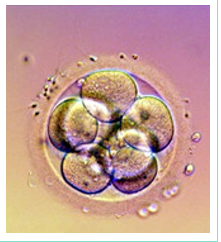Aggregated News

Photo by Pritamprajapati9 via wikimedia
The fertility industry generates approximately US$8 billion in revenue annually and plays a role in the birth of tens of thousands of children each year. Regulations are currently limited even as technology evolves and demand increases. But a new Colorado bill introduced in late April 2022 could help the industry better meet the needs of those who use it.
Fertility treatments take a number of forms. They may include fertility medication, intrauterine insemination, in vitro fertilization, or the use of donor sperm, eggs or embryos. Expenses for each treatment type vary widely, ranging from roughly $15,000 to $30,000 for a single IVF cycle to about $1,000 for a vial of sperm. Often, multiple tries are needed to achieve a pregnancy, and the costs can add up.
Despite these costs, the number of people who use reproductive technology is consistently rising. U.S. births assisted by fertility treatments increased more than threefold from 1996 to 2015.
We are law professors who study reproductive technology. One of us has used these treatments ourselves. The new Colorado...



